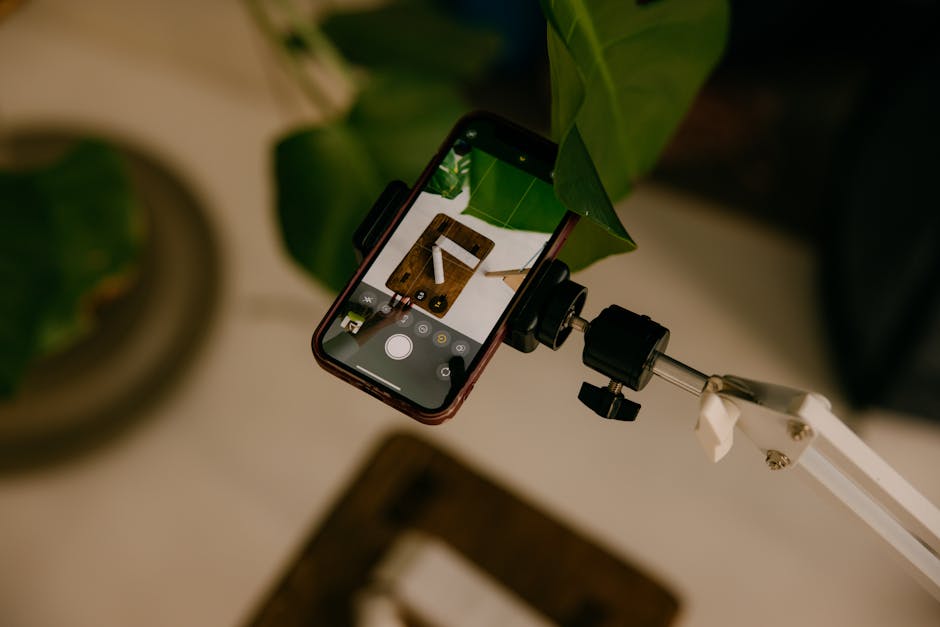The Impact of Technology on Modern Lifestyle Choices
Technology has undeniably influenced nearly every aspect of human life, reshaping how people work, communicate, and spend their leisure time. This transformation is not limited to specific sectors but spans across personal habits, professional environments, and social interactions. From the devices in our pockets to the smart systems managing our homes, technology has woven itself into the fabric of daily decision-making.
The choices we make today about what to eat, how to exercise, where to travel, or even how to learn are increasingly shaped by technological innovations. Whether it's wearable fitness trackers motivating healthier lifestyles or apps enabling remote work and education, these tools have become integral to modern living. The interplay between technological advancements and lifestyle preferences is a dynamic one, providing both opportunities and challenges that deserve closer examination.
1. The Role of Technology in Health and Wellness
The health and wellness industry has seen significant shifts due to technological advancements. Wearable devices such as smartwatches and fitness trackers allow individuals to monitor their physical activity, heart rate, sleep patterns, and more. These tools help users stay informed about their health metrics, encouraging proactive behavior toward maintaining wellness. Platforms like MyFitnessPal or Fitbit provide personalized plans for fitness and nutrition based on user data.
Telemedicine services have also grown in popularity, offering virtual consultations that save time while improving access to medical care. According to a report by McKinsey & Company (mckinsey.com), telehealth usage surged dramatically during the COVID-19 pandemic and has since become a standard option for many patients seeking non-emergency medical advice.
- Wearable technology for tracking health metrics
- Telemedicine for remote consultations
- Mobile apps promoting mental well-being through meditation or cognitive behavioral therapy
2. Redefining Work-Life Balance
The traditional 9-to-5 job has undergone a major transformation with the introduction of remote work technologies. Platforms such as Zoom, Microsoft Teams, and Slack have enabled professionals to collaborate from any location. This shift has allowed for greater flexibility in balancing professional responsibilities with personal lives but has also blurred the boundaries between work and leisure.

Additionally, gig economy platforms like Upwork and Fiverr have redefined employment by offering freelance opportunities across various skill sets. The reliance on technology for work also raises concerns about excessive screen time and its impact on mental health.
3. Social Connections in a Digital Era
The ways people socialize have been profoundly affected by technology. Social media platforms like Instagram, Facebook, and TikTok provide avenues for connecting with friends and family regardless of geographical distances. Video calling services such as WhatsApp or FaceTime make face-to-face conversations possible even when physical meetings are not an option.
This shift toward digital interaction offers convenience but can also lead to challenges such as reduced face-to-face communication skills or issues related to privacy. According to a Pew Research Center study (pewresearch.org), nearly 72% of Americans use social media daily, demonstrating its deep integration into everyday life.
- Increased connectivity through social media
- Enhanced communication via video calling
- Challenges like privacy concerns and screen addiction
4. Entertainment and Leisure Innovations
The entertainment industry has been revolutionized by streaming services like Netflix, Spotify, and YouTube. These platforms allow users to access content on demand, catering to individual preferences through personalized recommendations powered by artificial intelligence (AI). Virtual reality (VR) gaming is another example where technology creates immersive experiences that were previously unimaginable.
The rise of eBooks and audiobooks has transformed reading habits as well. Services like Audible enable multitasking while consuming literature (whether during commutes or workouts) making it easier for people with busy schedules to engage with books.
5. Ethical Considerations and Future Challenges
While technology has improved convenience and accessibility in various aspects of life, it also raises ethical questions. Issues such as data security breaches or the environmental impact of producing electronic devices require attention from both consumers and policymakers alike.
A study published in the Journal of Cleaner Production highlights concerns regarding e-waste management globally (sciencedirect.com). Balancing the benefits of technological innovation with sustainable practices remains an ongoing challenge for societies worldwide.
The integration of technology into modern lifestyles continues shaping behaviors at an unprecedented pace. From enhancing personal health monitoring systems to redefining workplace norms and social interactions, its influence is undeniable. This transformation comes with responsibilities, addressing ethical dilemmas while leveraging its potential for positive change will be essential moving forward.